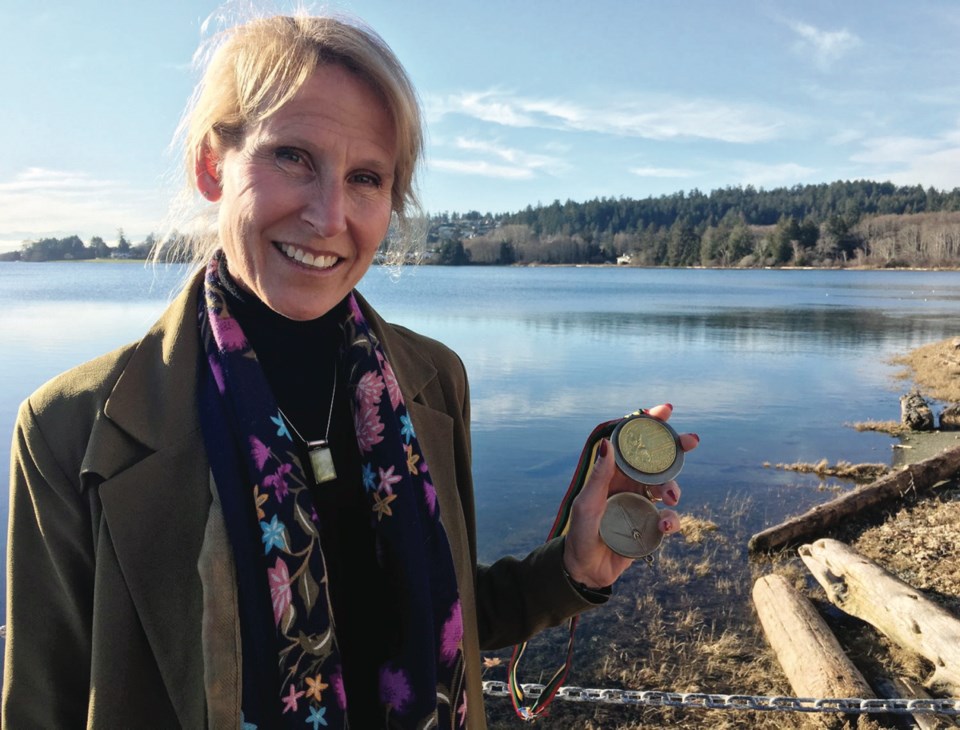Over the past few years, I’ve been fortunate to spend time with some exceptional leaders. People who lead with integrity and purpose and are mindful of their teammates.
In life, we all have many teams that we belong to, including our families, friends, colleagues and recreational groups. I think success in life comes to people who value the teams they are on and put effort into understanding team dynamics. It’s not only the person who wins the award, gets a promotion or earns a medal who did all the hard work.
One of my favourite stories showcasing this is how rower Jennifer Walinga received a gold medal in the Olympics.
The story begins back in 1988, when Walinga was on Team Canada for rowing. Many of the dominating teams in the sport were obviously using performance-enhancing drugs and were winning all the medals.
“We were discouraged, but we wanted to find a way to win,” said Walinga, explaining Team Canada wanted to win without doping. “We trained non-stop and we trained with and against each other, switching it up all the time.”
The team set high goals for itself and created an intense training schedule and regime that eventually paid off.
At the 1992 Summer Olympics in Barcelona, Spain, Team Canada won gold medals for each event it entered, totalling four medals.
“We showed the world that you didn’t need to take drugs to win,” Walinga said.
Walinga was scheduled to compete in two of these events, but was unable to race.
“A week before the final, we decided it was too risky,” said Walinga. She had to pull herself from the competition. She was healing from an injury and didn’t want her injury to compromise the event.
This was a tough choice for Walinga, who was a leader on the team with the important role of sitting at the front of the boat and setting the pace and rhythm of all the rowers.
“I knew that it would be OK because the rhythm was imbedded from all of our training,” said Walinga, crediting it to the hard work and intense training of the team.
Walinga made this decision to have a spare compete in the Games because not only was it the best decision for her team, it was also a healthy choice for her to not injure herself any further.
An interesting detail in the sport of rowing is that only the rowers in the boat during an event will win a medal. In other team sports, such as hockey, the entire team will earn a medal, even if their skates never scratch the ice.
After the Games, Walinga attended a wedding with several other athletes, and her teammate Brenda Taylor called her over and said she had something to give her. She then handed Walinga one of the gold medals she earned.
At first Walinga declined it, but after some coaxing by Taylor, she accepted it.
“Brenda said to me: ‘You need it because it symbolizes what we did as a team,’ ” Walinga said.
This is such a great story on so many levels. Even if Walinga was unable to compete at the Games, all her hard work, dedication and training with her team played a significant role in the win.
Taylor honouring Walinga for her efforts is a true demonstration of excellence. It’s not just the people who pass finish line who succeed.
“The medal is a symbol of excellence, and it’s about how you earned it, whether it’s sacrificing your seat or training with integrity,” Walinga said.
Walinga and Taylor are still close friends and continue to row together and compete with a team. In October, they and their teammates won a gold medal at an international regatta in Boston.
“I was 27 when my team won its gold medals at the Olympics, and now 27 years later, we won this gold medal.”
Walinga is a professor and program head in the school of communications at Royal Roads University. She works to inspire others by teaching leadership development through sport at Royal Roads, working with Rugby Canada and Rowing Canada. Walinga is seeking teams of all levels interested in participating in her research.
Charla Huber works in communications and Indigenous relations for M’akola Group of Societies.



